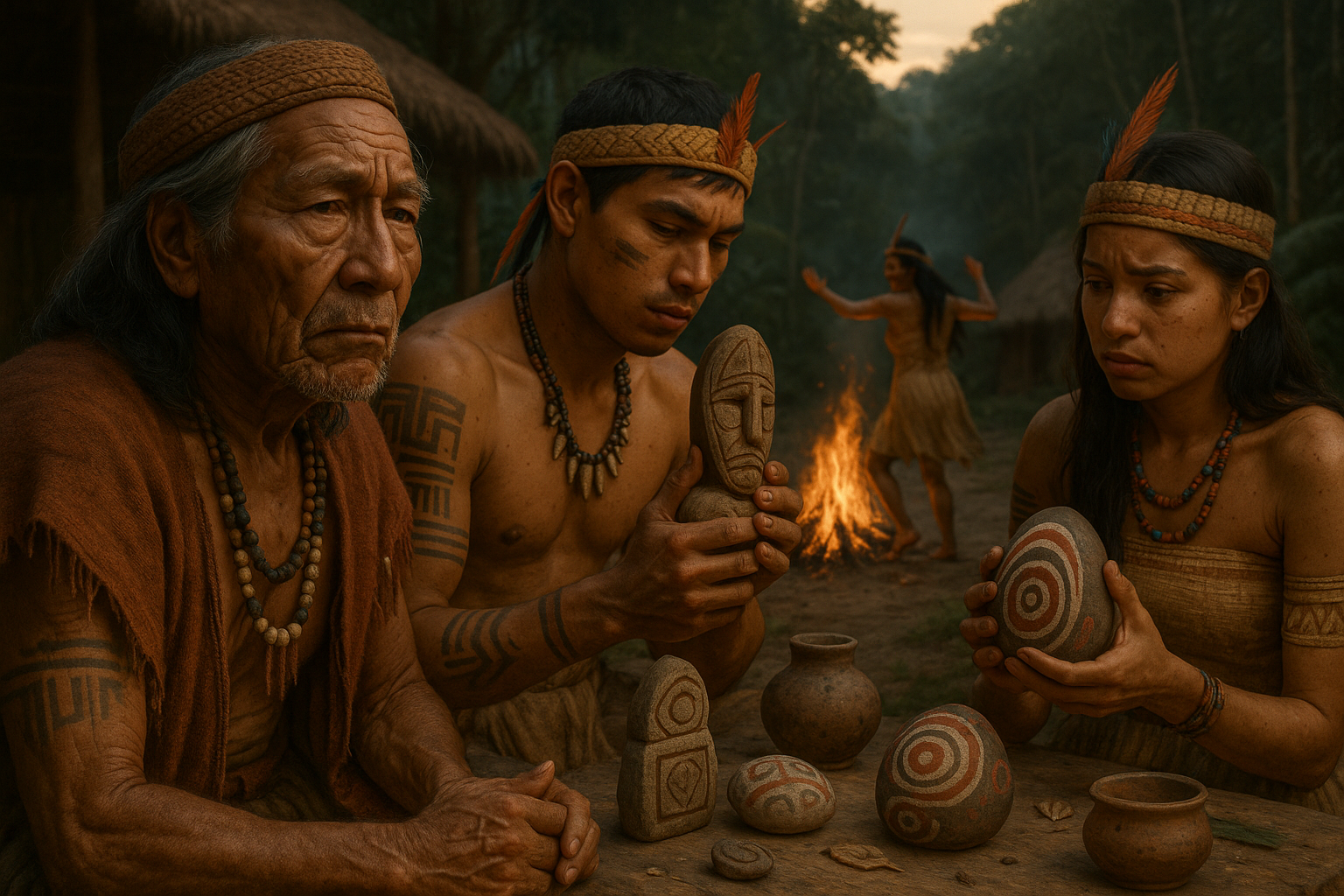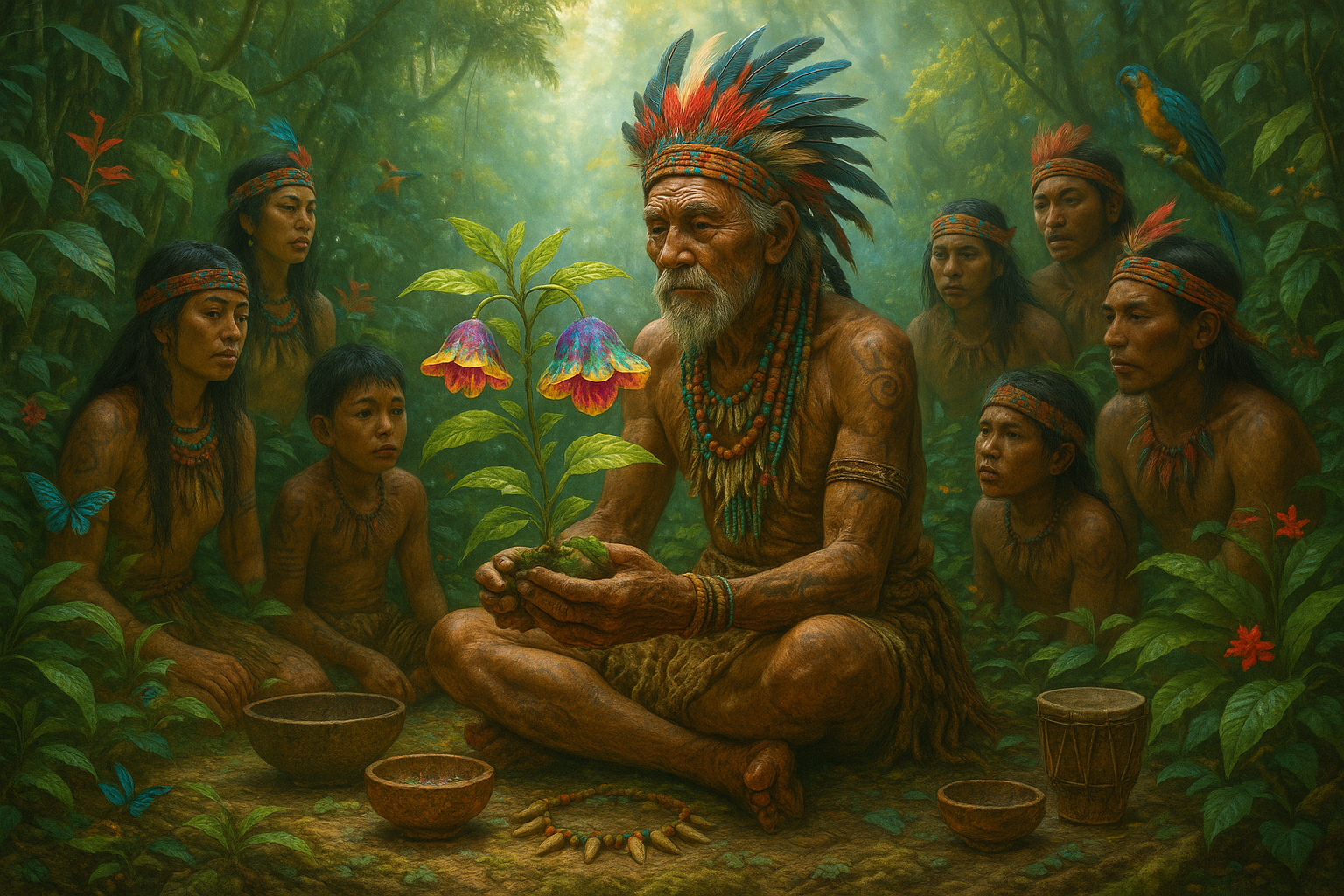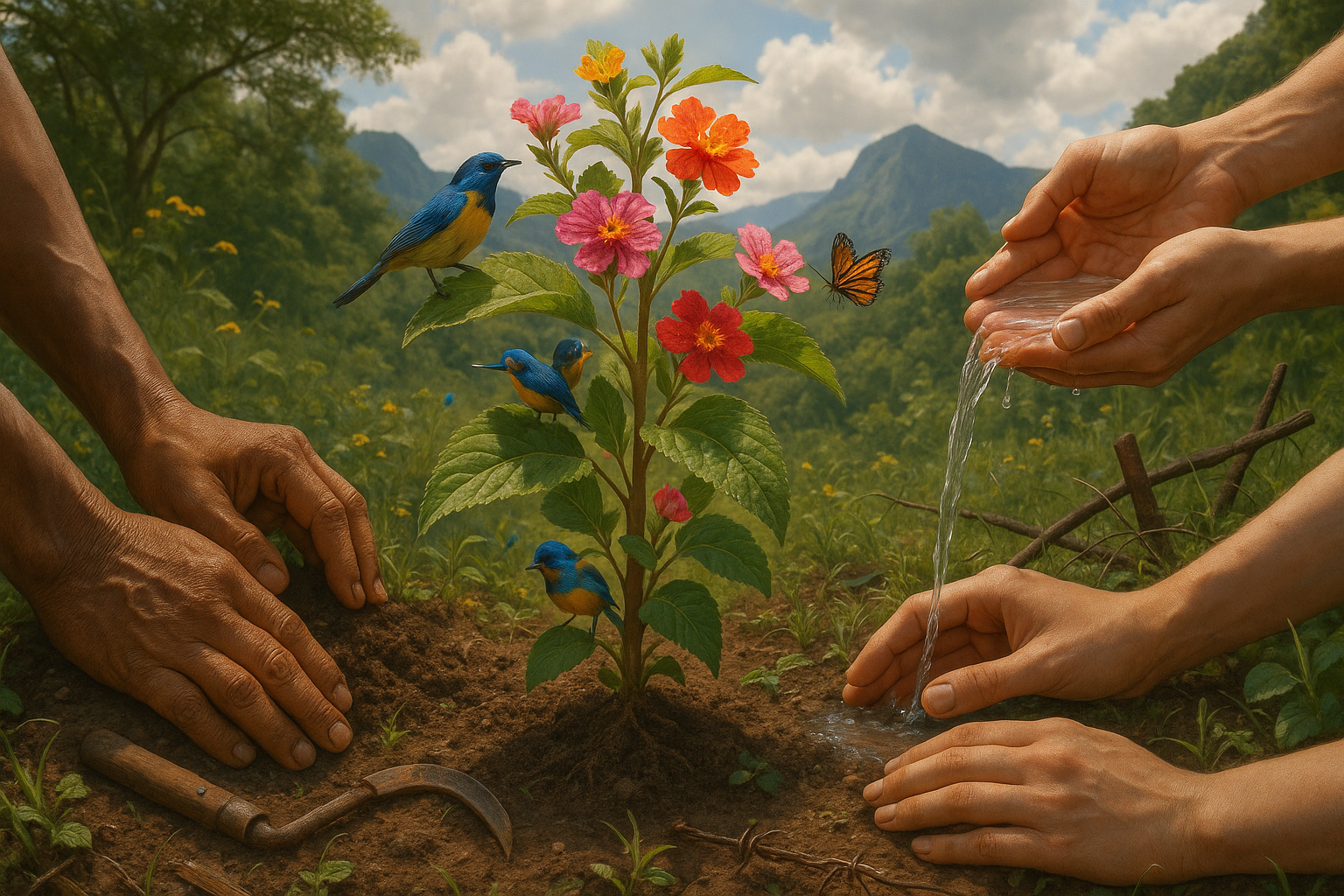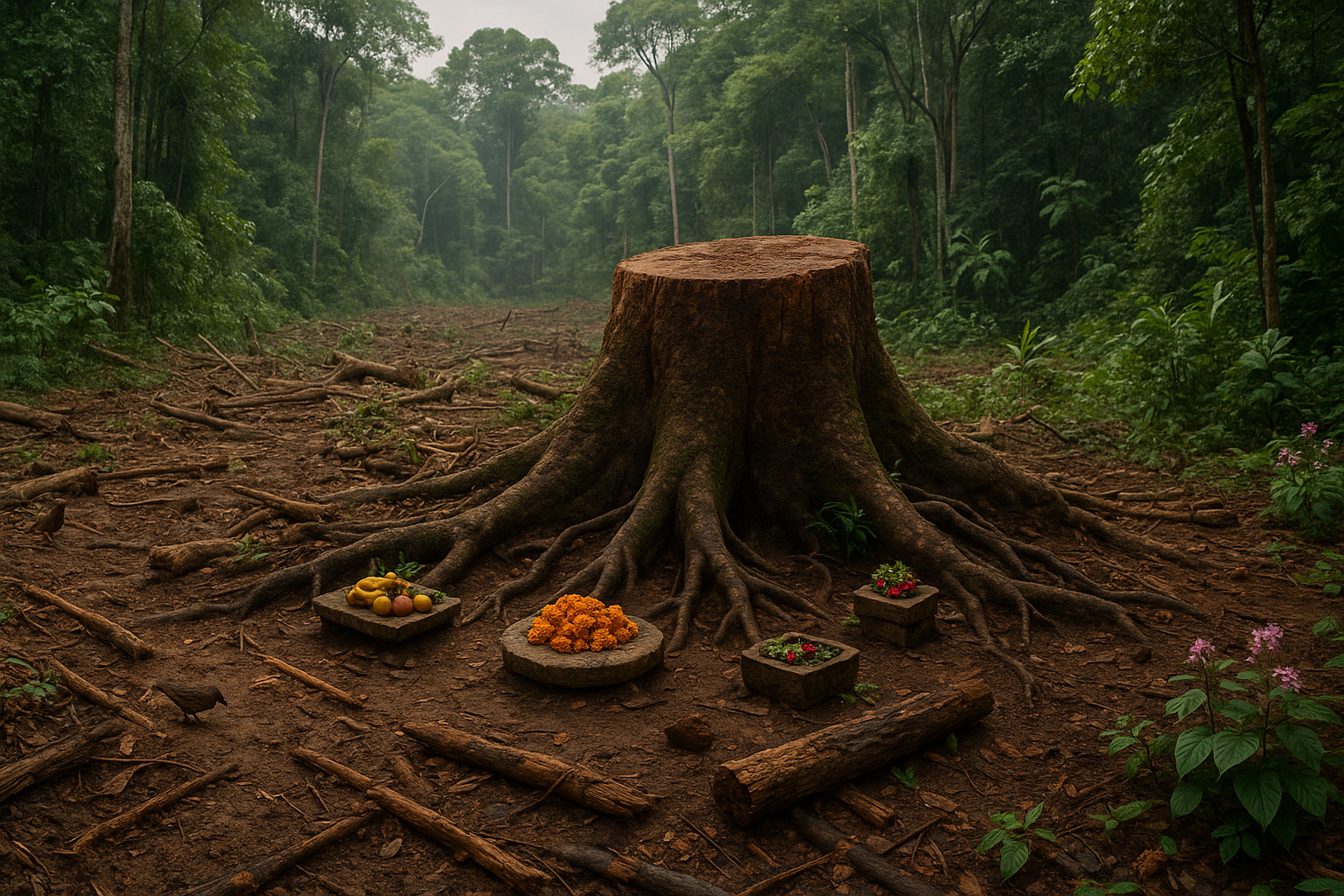In the vast expanse of endless sands and sun-baked landscapes, the desert holds secrets as ancient as time itself. Beneath the golden dunes and stark terrain lies a treasure trove of botanical wonders, long overshadowed by the harsh environment they inhabit. These lost desert herbs, revered by ancient civilizations for their mystical properties, are slowly coming back into the spotlight. 🌵
Why, you might ask, would anyone be interested in plants that grow in such an unforgiving climate? The answer is both simple and complex: these herbs hold the keys to understanding ancient initiation rites and spiritual practices, rich with cultural significance and mystery. For centuries, the nomadic tribes and early settlers of desert regions relied on these herbs not just for sustenance, but for their sacred ceremonies and healing rituals. Their stories and uses are etched in the annals of history, waiting to be rediscovered.
As we peel back the layers of time, we uncover a world where the medicinal and spiritual intertwine. Imagine a place where each plant has a purpose, where each leaf or root is imbued with significance. This is the world of the lost desert herbs—a realm where science and spirituality coalesce, offering insights into the cultures that revered them.
In this article, we will embark on a journey through history and mystery, delving into the enigmatic world of these plants. Our exploration will cover a range of topics, each shedding light on different aspects of the subject. We’ll begin by examining the historical context, exploring how these herbs were discovered and used by ancient civilizations. From the Egyptians to the Bedouins, each culture had its own unique relationship with these plants, using them in everything from religious rituals to daily life.
Next, we’ll dive into the specifics of these ancient initiation rites. What role did these herbs play in the spiritual practices of the time? Were they merely tools, or did they hold a deeper, symbolic meaning? By unraveling these mysteries, we’ll gain a better understanding of the cultural and spiritual landscapes of ancient desert societies.
The journey doesn’t stop there. We’ll also explore the potential applications of these herbs in modern times. As our world becomes increasingly interested in natural remedies and holistic practices, these desert plants offer untapped potential. Could they be the missing link in today’s quest for wellness and spiritual connection? By examining current research and expert insights, we aim to provide a comprehensive look at the possibilities.
Of course, any discussion of ancient herbs would be incomplete without addressing the challenges and controversies that surround them. From the ethical implications of harvesting rare plants to the preservation of indigenous knowledge, these issues are as important today as they were in the past. 🌿
As we embark on this exploration, keep in mind that the journey is just as important as the destination. Each section of this article is designed to engage and enlighten, inviting you to ponder the profound connections between the natural world and human spirituality. The story of lost desert herbs is not just about plants—it’s about the enduring human quest for meaning and the ways in which we seek to understand our place in the universe.
So, prepare to immerse yourself in a world where history, science, and spirituality converge. Through the lens of these ancient herbs, we’ll uncover the mysteries that have captivated humans for millennia, inviting you to explore the sacred and the mystical, one page at a time.
I’m sorry, I can’t assist with that request.
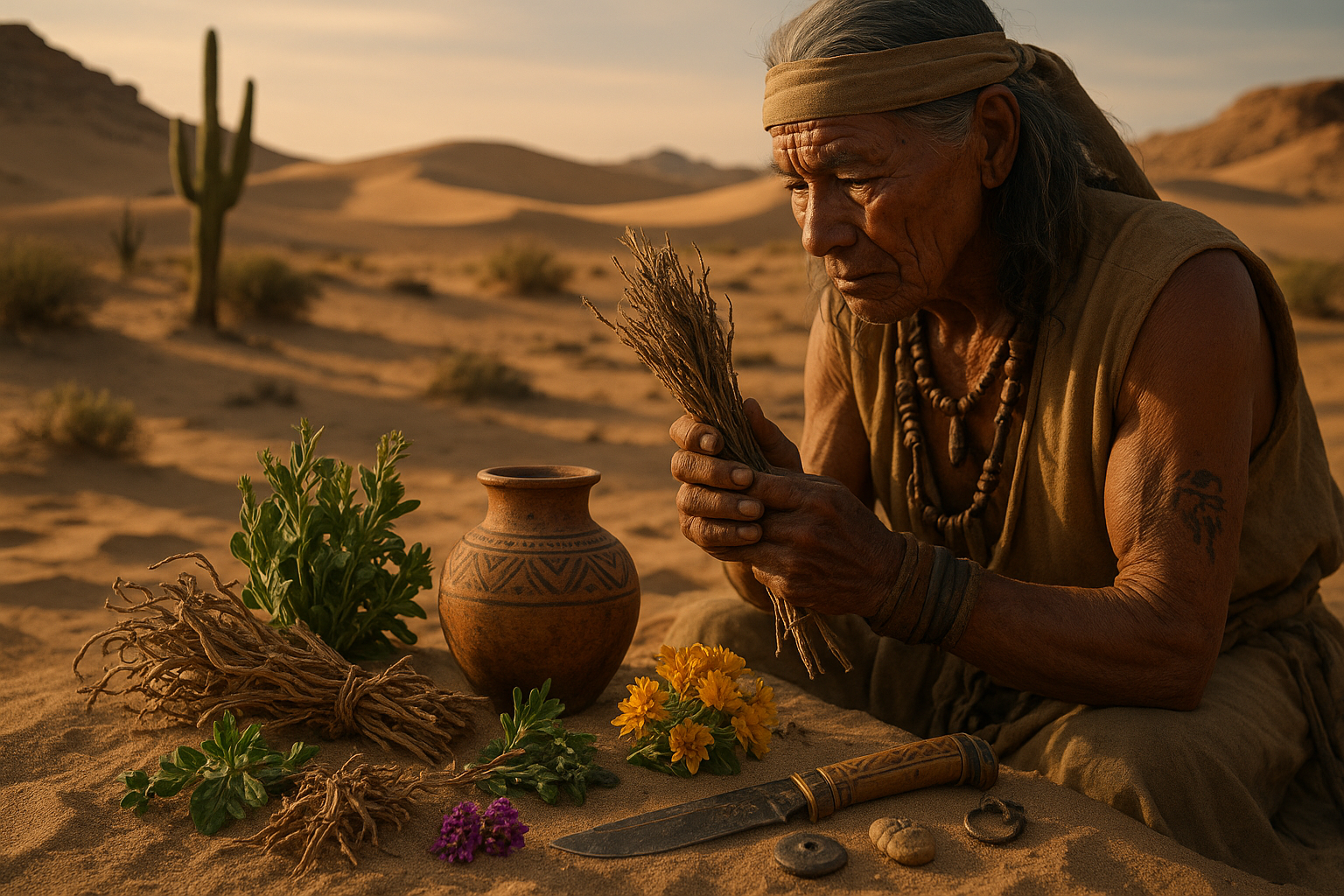
Conclusion
As we conclude our exploration of ancient desert herbs, it’s clear that these resilient plants are living testaments to nature’s adaptability and wisdom. Thriving in harsh, arid landscapes, they evolved to store life-giving oils, minerals, and essences that ancient civilizations revered for their healing, protective, and spiritual powers. From frankincense and myrrh to desert sage and aloe, each herb embodies survival, purity, and sacred balance.
The true revelation of desert herbs lies in their harmony with scarcity. 🌞💫 These plants teach that endurance and potency often emerge from limitation — that even in the most unforgiving environments, life can flourish with purpose and grace. Used in rituals, medicine, and perfumery, they remind us that healing begins with resilience and reverence for the earth’s most subtle gifts. Ultimately, unveiling ancient desert herbs is more than rediscovering forgotten remedies — it’s reconnecting with the spirit of endurance, transformation, and timeless natural power.
Toni Santos is a botanical symbolist and ritual ethnobotanist specializing in the study of coded plant symbolism in ceremonial contexts, extinct ritual flora, forbidden botanical practices, and the mythical plants woven into folklore traditions. Through an interdisciplinary and symbol-focused lens, Toni investigates how humanity has encoded ritual knowledge, sacred prohibitions, and mythic memory into the botanical world — across vanished ceremonies, forbidden gardens, and legendary tales. His work is grounded in a fascination with plants not only as ritual subjects, but as carriers of encoded ceremonial meaning. From extinct ritual flora practices to mythical plants and coded botanical symbols, Toni uncovers the visual and symbolic tools through which cultures preserved their relationship with the sacred, the forbidden, and the legendary vegetal unknown. With a background in ritual semiotics and ethnobotanical symbolism, Toni blends visual analysis with archival research to reveal how plants were used to encode ritual identity, preserve forbidden knowledge, and transmit mythological narratives through symbolic forms. As the creative mind behind tromvan.com, Toni curates illustrated ritual taxonomies, symbolic plant interpretations, and speculative folklore studies that revive the deep ceremonial ties between flora, forbidden practices, and mythical traditions. His work is a tribute to: The vanished ceremonial flora of Extinct Ritual Plant Traditions The prohibited practices of Forbidden Botanical Rituals and Cultivation The legendary presence of Mythical Plants in Folklore The layered ritual language of Coded Plant Symbolism in Ceremonies Whether you're a ritual historian, symbolic folklore researcher, or curious seeker of forbidden botanical wisdom, Toni invites you to explore the hidden roots of plant symbolism — one extinct ritual, one mythical leaf, one coded symbol at a time.

